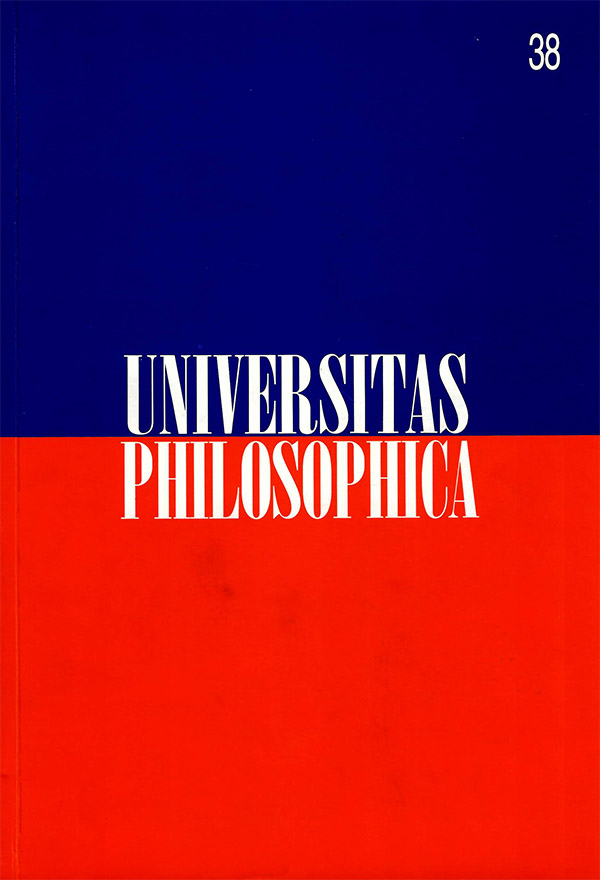Abstract
The present work tries to approach Agustine's doctrine of illumination, from a critica] reading of his De Magistro. The doctrine of illumination is the center of Agustine's philosophical thought. That doctrine would be the common ground in which Agustine's ontologic and gnoseologic thought is concentrated. It represents Agustine's answer to the ontologic question on what things are and the gnoseologic question on how do we get to know things. In De Magistro, the answer to the fundamental (onto- noseologic) questions, acquires the forro a thoughtful, dialogic, ascending and progressive a way: It is possible to see that the course of thought that is followed by Agustine is based on a platonic ontologic structure made up of two components: the internal and the external, the upper and the lower. It is from the ascending structure of the writing that this paper takes the structure for its two main sections: first, on the relation between language and things, and second, on the doctrine of the illumination: the knowledge of things themselves. At the end of the work a third section has been added, in which some of the most meaningful repercussions are developed: the influence exerted by the doctrine of the illumination in later philosophers of the middle ages and, also, the pertinent conclusions.
This journal is registered under a Creative Commons Attribution 4.0 International Public License. Thus, this work may be reproduced, distributed, and publicly shared in digital format, as long as the names of the authors and Pontificia Universidad Javeriana are acknowledged. Others are allowed to quote, adapt, transform, auto-archive, republish, and create based on this material, for any purpose (even commercial ones), provided the authorship is duly acknowledged, a link to the original work is provided, and it is specified if changes have been made. Pontificia Universidad Javeriana does not hold the rights of published works and the authors are solely responsible for the contents of their works; they keep the moral, intellectual, privacy, and publicity rights.
Approving the intervention of the work (review, copy-editing, translation, layout) and the following outreach, are granted through an use license and not through an assignment of rights. This means the journal and Pontificia Universidad Javeriana cannot be held responsible for any ethical malpractice by the authors. As a consequence of the protection granted by the use license, the journal is not required to publish recantations or modify information already published, unless the errata stems from the editorial management process. Publishing contents in this journal does not generate royalties for contributors.


